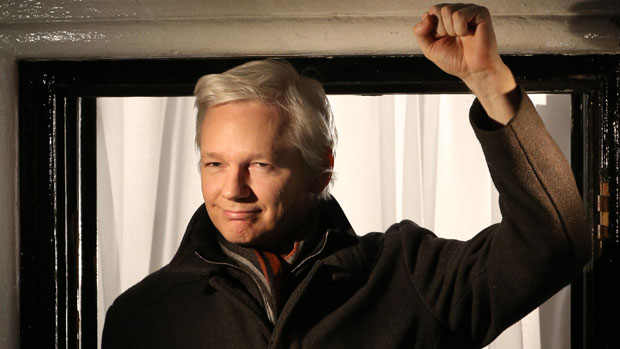WikiLeaks dump shows CIA knew how to hack smart TVs
Spy tool codenamed 'Weeping Angel' able to turn a Samsung set into a covert listening device

A free daily email with the biggest news stories of the day – and the best features from TheWeek.com
You are now subscribed
Your newsletter sign-up was successful
UK and US spies joined forces to develop tools to hack mobile phones, computers and even smart TVs, according to confidential CIA files published online at WikiLeaks yesterday.
"The document dump - the worst security breach for western intelligence since the Edward Snowden leaks in 2013 - reveals how the CIA has built up a 5,000-strong cyberforce over the past four years," says The Times.
Vault 7, as the 8,761 files are codenamed, appear to show the CIA's hacking division has built up a large archive of viruses and "weaponised" malware.
The Week
Escape your echo chamber. Get the facts behind the news, plus analysis from multiple perspectives.

Sign up for The Week's Free Newsletters
From our morning news briefing to a weekly Good News Newsletter, get the best of The Week delivered directly to your inbox.
From our morning news briefing to a weekly Good News Newsletter, get the best of The Week delivered directly to your inbox.
One spying tool, which the US agency named "Weeping Angel", after the Doctor Who villain, describes how to turn a Samsung F8000 TV set into a covert listening device, while classified discussions about another tool, codenamed "Anger Management", designed to hack into Android phones, make reference to GCHQ and MI5 in the UK.
WikiLeaks claims another CIA file enabled US spies to carry out cyberattacks and then leave false "fingerprints" to frame others.
BBC security correspondent Gordon Corera says the leak is a "huge problem" for the CIA, saying: "There is the embarrassment factor – that an agency whose job is to steal other people's secrets has not been able to keep their own."
WikiLeaks says it has redacted names and other identifying information from the documents and has chosen not to publish the computer code for the hacking tools "until a consensus emerges on the technical and political nature of the CIA's program and how such 'weapons' should be analysed, disarmed and published".
A free daily email with the biggest news stories of the day – and the best features from TheWeek.com
The CIA refused to verify the authenticity of the leaked documents. "We do not comment on the authenticity or content of purported intelligence documents," spokeswoman Heather Fritz Horniak said in a statement.
A spokesman for Samsung said: "Protecting consumers' privacy and the security of our devices is a top priority at Samsung. We are aware of the report in question and are urgently looking into the matter."